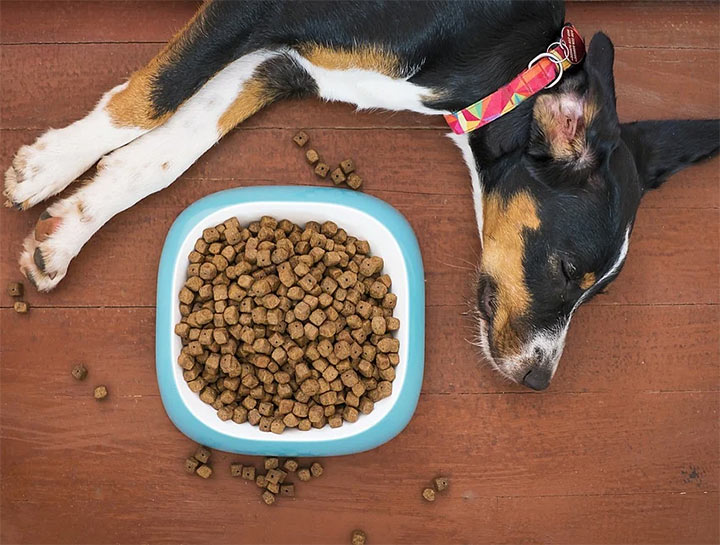Understanding Pet Food Labels

What is GOOD dog food? And how do you find out?
We decided to do some research and came across a wealth of helpful information on the websites of the US Food and Drug Administration (FDA) and the World Small Animal Veterinary Association (WSAVA).
This is what you should know:
1. Your pet's age, breed, activity level, and whether or not they're spayed/neutered have a lot to do with how much food they need
2. Although food labels are regulated by the FDA and must be factual, it's important to remember that they're also promotional tools
Deciphering Pet Food Labels
Active dogs, puppies, lactating moms, and some large breeds require more calories than older, less active dogs. However, choosing the right type of food can be overwhelming which is why it's important to be able to understand the labels.
The words 'gourmet,' 'premium,' 'super-premium,' and 'ultra-premium' are now commonly found on pet food labels but what do they actually mean?
According to the FDA, 'premium' and 'gourmet' products are not held to any higher nutritional standards than any other complete and balanced products, nor do they require pet food brands to use any particularly high-quality ingredients.
'Natural' is yet another ambiguous term. Most of the time, 'natural' is viewed as 'equivalent to a lack of artificial flavors, artificial colors, or artificial preservatives in the product.' Still, just because a product is natural does not mean it's organic.
The term 'organic' refers to 'the conditions under which the plants were grown or animals were raised.' Generally speaking, this means that the ingredients are grown 'without the use of pesticides, synthetic fertilizers, sewage sludge, genetically modified organisms, or ionizing radiation.'
Unfortunately, at this time, there are no official rules governing when pet foods can be labeled 'organic.' However, the United States Department of Agriculture (USDA) is working to develop regulations 'dictating what types of synthetic additives, such as vitamins and purified amino acids, may be used in pet foods labeled as organic.'
What’s a Pet Owner to Do?
Both pet owners and veterinary professionals deserve to know exactly what they're feeding their animals. While pet food labels can come with a wealth of information, they're only helpful if consumers know how to read them.
If you ever have questions about a pet food product, don’t be afraid to contact the manufacturer.
Should you decide to contact the manufacturer, the World Small Animal Veterinary Association recommends asking questions such as:
• Do you employ a qualified, full-time nutritionist? Can you tell me about that person's qualifications?
• Where are your foods manufactured and produced?
• What quality control measures do you adhere to in order to assure consistency and quality?
• What kind of research has been conducted around your product? Can you point me in the direction of any peer-reviewed studies?
Your pets' diet can directly affect their health – the FDA even recently announced that they were investigating a potential link between diet and canine heart disease – so be sure to do your research and ask the important questions.
